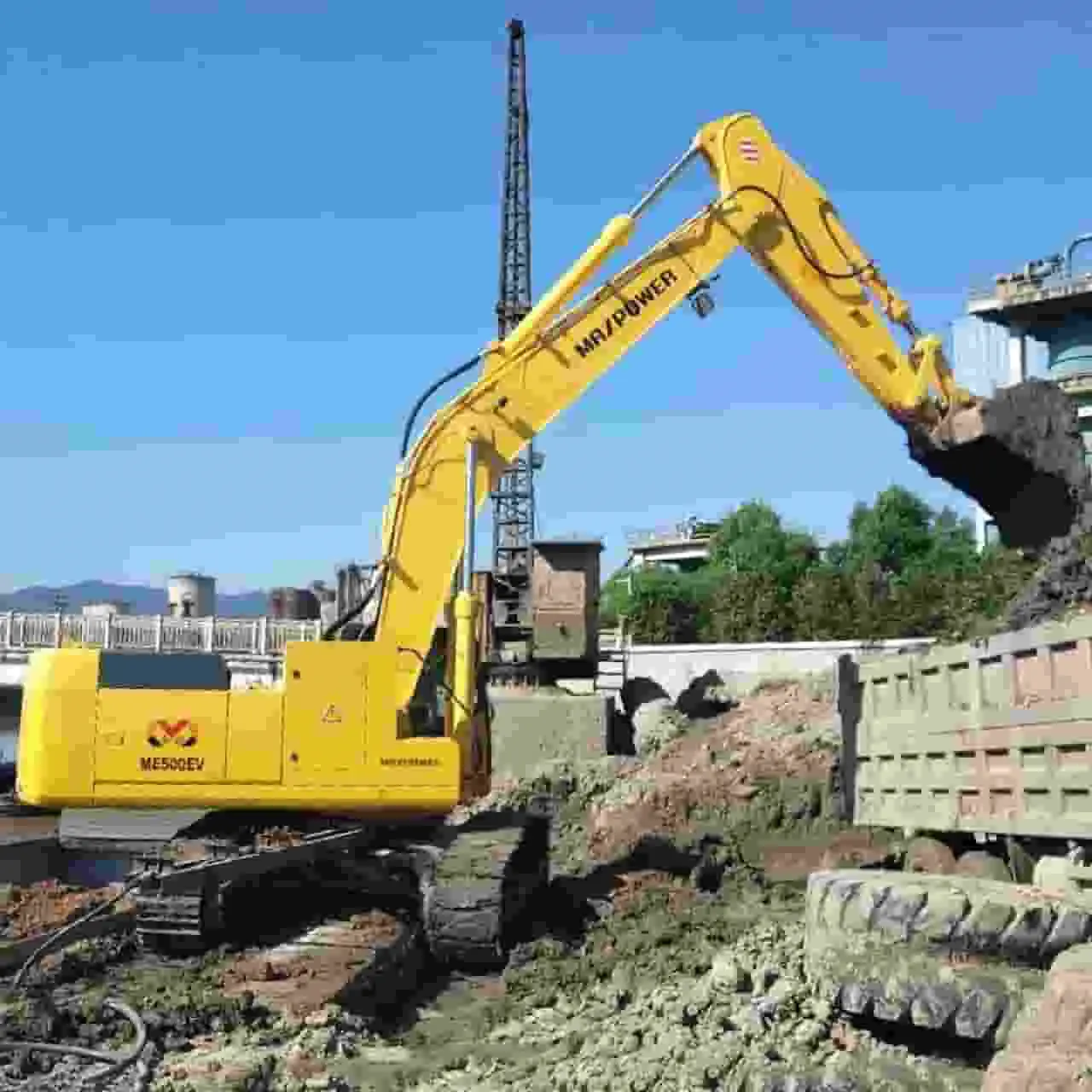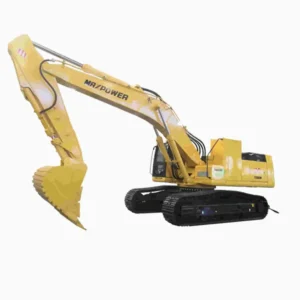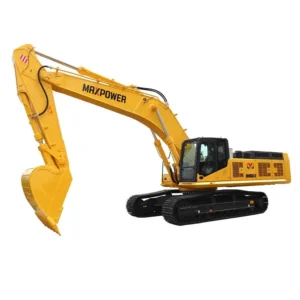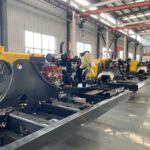Welcome to My Blog!
Before we dive into the content, I’d love for you to join me on my social media platforms where I share more insights, engage with the community, and post updates. Here’s how you can connect with me:
Facebook:https://www.facebook.com/profile.php?id=100066759548969
Now, let’s get started on our journey together. I hope you find the content here insightful, engaging, and valuable.
معرفی
The construction industry is undergoing a significant transformation, driven by advancements in technology and a growing emphasis on sustainability. As the world seeks to reduce carbon emissions and move towards greener alternatives, electric machinery is becoming increasingly popular. One of the most promising developments in this space is the electric excavator. Unlike traditional diesel-powered excavators, electric excavators offer numerous benefits, including reduced emissions, lower operating costs, and quieter operation. In this blog, we will explore why electric excavators are the future of construction and how they can revolutionize the industry.
Understanding Electric Excavators

What is an Electric Excavator?
An electric excavator is a construction machine powered by electricity instead of diesel fuel. It performs the same functions as a traditional excavator—such as digging, lifting, and moving materials—but does so using electric motors and batteries. Electric excavators come in various sizes, from mini excavators ideal for urban environments to larger models suitable for heavy-duty construction projects.
Key Components of an Electric Excavator:
- Electric Motor: Replaces the internal combustion engine found in diesel excavators, providing the power needed to operate the machine.
- Battery Pack: Stores the electrical energy required to run the excavator. Battery capacity varies depending on the size and model of the excavator.
- Charging System: Allows the battery to be recharged, either on-site or at a charging station. Some models also support fast charging, reducing downtime.
- Hydraulic System: Operates the boom, arm, and bucket, similar to traditional excavators, but powered by electricity.
How Electric Excavators Work
Electric excavators operate in much the same way as their diesel counterparts but with a few key differences. The electric motor drives the hydraulic pumps that power the excavator’s movements, such as lifting the boom or rotating the cab. The energy for these movements is supplied by the battery pack, which can be recharged as needed.
One of the main advantages of electric excavators is their instant torque delivery, which can lead to smoother operation and greater precision in tasks such as digging or grading. Additionally, because they do not rely on combustion, electric excavators produce no exhaust emissions, making them ideal for use in enclosed spaces or urban areas with strict emissions regulations.
Advantages of Using an Electric Excavator
مزایای زیست محیطی
One of the most compelling reasons to choose an electric excavator is its environmental impact. Construction sites are often major sources of pollution, with diesel engines contributing to air and noise pollution. Electric excavators address these issues by offering a cleaner, quieter alternative.
Environmental Advantages:
- Zero Emissions: Electric excavators produce no exhaust emissions, significantly reducing the carbon footprint of construction projects.
- Reduced Noise Pollution: Electric motors are much quieter than diesel engines, making electric excavators ideal for urban construction sites where noise restrictions are in place.
- Lower Energy Consumption: Electric excavators are more energy-efficient, converting a higher percentage of energy into useful work compared to diesel-powered machines.
Cost Efficiency
While the initial purchase price of an electric excavator may be higher than that of a diesel model, the long-term cost savings can be substantial. Electric excavators have fewer moving parts, which reduces maintenance costs and the likelihood of mechanical failures. Additionally, electricity is often cheaper than diesel fuel, leading to lower operating costs over the life of the machine.
Cost Efficiency Breakdown:
- Lower Fuel Costs: Electricity is generally cheaper than diesel, especially when considering the volatility of fuel prices.
- Reduced Maintenance Costs: Fewer mechanical components mean less wear and tear, reducing the frequency and cost of repairs.
- Longer Lifespan: Electric motors tend to last longer than combustion engines, extending the useful life of the excavator.
Table: Comparison of Operating Costs Between Diesel and Electric Excavators
| Cost Factor | Diesel Excavator | Electric Excavator |
|---|---|---|
| Fuel Cost (per hour) | $20 – $30 | $5 – $10 |
| Maintenance Cost (per year) | $3,000 – $5,000 | $1,500 – $3,000 |
| Lifespan of Engine/Motor | 5,000 – 10,000 hours | 10,000 – 20,000 hours |
| Total Operating Cost (per year) | $10,000 – $15,000 | $6,000 – $10,000 |
Improved Operational Performance
Electric excavators offer several operational advantages over their diesel counterparts. The electric motor’s ability to deliver instant torque results in smoother operation, better control, and enhanced precision in handling materials. This is particularly beneficial in tasks that require delicate maneuvers or in environments where precision is crucial.
Operational Advantages:
- Smoother Operation: Instant torque delivery provides more responsive and controlled movements.
- Increased Precision: Better control leads to more accurate digging, grading, and material handling.
- Enhanced Safety: Quieter operation and reduced vibrations contribute to a safer working environment.
Challenges and Considerations

سرمایه گذاری اولیه
One of the main challenges associated with electric excavators is the higher initial purchase price compared to diesel models. However, this upfront cost can be offset by the long-term savings in fuel, maintenance, and operating costs.
Considerations for Initial Investment:
- Higher Purchase Price: Electric excavators are typically more expensive upfront due to the cost of batteries and electric motors.
- Long-Term Savings: The lower operating and maintenance costs can help recoup the initial investment over time.
Battery Life and Charging Infrastructure
Battery life and charging infrastructure are critical factors to consider when choosing an electric excavator. The availability of charging stations, the time required to recharge, and the duration a fully charged battery can last are all important considerations.
Battery-Related Considerations:
- Battery Range: Depending on the model and the intensity of use, a single charge may last anywhere from 4 to 8 hours.
- Charging Time: Fast charging options are available, but they require specialized infrastructure.
- Infrastructure Requirements: Construction sites may need to invest in charging stations to support the use of electric excavators.
Availability and Model Options
While the market for electric excavators is growing, the options available are still more limited compared to traditional diesel models. This can make it challenging to find an electric excavator that meets all the specific needs of a project.
Availability Considerations:
- Limited Model Range: Fewer options are available, particularly for larger excavators.
- Brand Choices: Not all major manufacturers offer electric versions, limiting the brands to choose from.
نتیجه
The future of construction is undoubtedly moving towards more sustainable and environmentally friendly practices, and electric excavators are a key part of this transition. With their numerous benefits, including reduced emissions, lower operating costs, and improved operational performance, electric excavators are well-positioned to become the go-to choice for many construction projects. While challenges such as higher initial costs and the need for charging infrastructure remain, the long-term advantages make electric excavators a smart investment for the future.
سوالات متداول
What are the main environmental benefits of using an electric excavator?
Electric excavators produce zero emissions, reduce noise pollution, and have lower energy consumption compared to diesel-powered excavators, making them more environmentally friendly.
How does the cost of an electric excavator compare to a traditional diesel excavator?
While electric excavators typically have a higher initial purchase price, they offer long-term savings in fuel costs, maintenance, and overall operating expenses.
What is the typical battery life of an electric commercial excavator, and how does it impact construction projects?
The battery life of an electric commercial excavator usually ranges from 4 to 8 hours, depending on the model and usage. Projects may need to plan for charging times or invest in additional batteries.
Are electric commercial excavators as powerful as their diesel counterparts?
Yes, electric commercial excavators can provide comparable power and performance, with the added benefit of instant torque delivery for smoother and more precise operations.
What are the key operational advantages of using an electric commercial excavator?
Electric excavators offer quieter operation, reduced vibrations, and more controlled movements, which can enhance precision and safety on construction sites.
What challenges are associated with the adoption of electric commercial excavatorss in construction?
Challenges include the higher initial investment, the need for charging infrastructure, and the current limited availability of models, particularly for larger excavators.
How does using an electric commercial excavators contribute to sustainability goals in construction?
Electric commercial excavatorss help reduce the carbon footprint of construction projects by eliminating emissions and reducing the environmental impact associated with fuel consumption.
What considerations should be taken into account when integrating electric commercial excavatorss into a construction fleet?
Considerations include the availability of charging stations, battery life, potential operational cost savings, and the suitability of electric models for specific project requirements.
How does the noise level of an electric commercial excavators compare to that of a diesel excavator?
Electric commercial excavatorss are significantly quieter than diesel models, making them ideal for use in urban areas or environments with strict noise regulations.
What is the future outlook for electric commercial excavatorss in the construction industry?
The future looks promising as technology advances, more models become available, and the industry continues to prioritize sustainability, making electric commercial excavatorss a key component of modern construction practices.









-150x150.webp)
